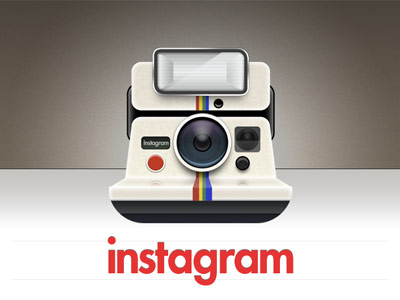About a month ago, I wrote an article about Facebook’s mammoth public initial offering (IPO), followed by an article about Kodak’s bankruptcy a week later. Nowadays, we are discussing the acquisition that indirectly (or even directly) connects these previous articles: Facebook’s acquisition of Instagram for $1 billion. How is Kodak’s bankruptcy and Facebook’s acquisition of Instagram connected? Analog photo sharing is becoming less relevant with the steady increase in heavy social media sharing. Only photography classes, a handful of professional photographers and hipsters are getting back on the analog train. The rest of the world, however, is becoming less familiar with the existence of film cameras. Why would you use an analog camera if you can’t immediately share the photos you take?
Instagram, on the other hand, attains the features that tend to the needs of heavy social sharers, while giving them a little more than just digital photography. However, many commentators can’t help but ask, “Is Instagram worth $1billion?” Why, yes, yes it is. Instagram, coupled with Facebook packed in a mobile device is the technology of the future. Instagram is an application that works only on cell phones (iPhone and Android specifically) and its users are given the option of editing photos on-the-spot. Instagram provides its users with filters that make photos look nostalgic, vintage, blurry or fuzzy. Essentially, Instagram represents everything that the new generation of extreme-sharers require: the ability to post instantly photos taken on camera phones while making photos look like they came out of an analog camera.
Nevertheless, many people argue that Facebook overvalued Instagram. For some, the fact that Instagram encompasses the future of social media doesn’t make it worth that much money. How does one put a value on a social media medium? Does it depend on company’s fame or potential for growth? In general, social media companies generate revenue from ads, and their value comes from the revenue they generate. However, Instagram did not have a fixed income; it did not get any ads. Facebook acquired a company that is only 551 days old, with no source of income. Not surprisingly, a 551-day-old company getting valued at $1billion is new and somewhat mindboggling. Dennis K. Berman, the marketplace editor for Wall Street Journal, summarized the surprise felt by some in a single tweet: “Remember this day. 551-day-old Instagram is worth $1 billion. 116-year-old New York Times Co.: $967 million.”
Perhaps the acquisition reflects the beginning of a new trend where companies get valued based on their ability to reflect the future of social media, rather than history of prominent business endeavors. Perhaps, by valuing Instagram, Facebook is contributing to the expansion of a newly born tech bubble. Recently we haven’t seen any acquisitions within the tech world that did not receive criticism about its valuing system.
On the other hand, $1 billion is not a lot of money for Facebook which is currently worth more than any company in the field of technology. Instagram is a free-of-charge photo application and has a format that is much more user friendly than Facebook’s version of the mobile app. Reportedly, Facebook was already spending research and development money on making a mobile app that would compete with Instagram. After all, Facebook needs to expand its business in order to deserve its whopping IPO of $5 billion. Facebook is merely creating a business model for its newly forming corporate face.
This is Facebook’s first acquisition and, according to Zuckerberg’s recent announcement, it will be the last one for any time in the near future. Therefore, Facebook was being extremely perceptive in acquiring its competition. By doing so, Facebook now added thirty million Instagram users to its own cyber sphere. Facebook is trying to grow by adding more users to its interface. More users means more exposure to ads. Adding Instagram means more people will share and look at photos through Facebook and will be spending a lot more time on it, getting exposed to more ads. As one journalist writing for The Atlantic put it, “If you can’t beat them, buy them, is the new Silicon Valley approach.” Facebook is not planning to change anything about Instagram; it is mostly hoping to develop its fame in the mobile device world.
Everything is becoming mobile friendly: Twitter, Foursquare, Instagram and Path all have extremely user-friendly mobile templates. These companies have only focused on the mobile and never on the web or computer aspect. They care about contributing to future of technology: having everything available within the mobile gadget. Additionally, there have been a number of studies published, predicting that by 2015, one third of Internet usage will derive from mobile devices. In this case, Apple probably should have bought Instagram. Too late now. In fact, many other tech firms were on the verge of acquiring Instagram. Google and Twitter definitely thought more than twice about it. Facebook acted faster and wrote an instant check.
Whether Instagram is worth $1 billion or not is for us to see. What we can take away from this somewhat shocking business deal is the changing attitudes towards social life/media/gadgets. Kodak is dying because of the changes in our perception on recording moments. The generation that spends more than hour a day on social media tools has changing views about the concept of time. Time is worthy, if things are done in an instant fashion. Film cameras do not fit into the life style of a generation that is now very much used to having this occur instantly. This is how the new generation likes to tackle life: instant valuing, instant sharing, instant gains and instant returns, Instagram! Not just photography, but many media tools are becoming more instant by getting added on mobile devices. Facebook invested $1 billion not just on Instagram, but also in redefining the changing concept of time within the world of technology. •












[…] an Instagram RivalThe Next WebInstagram, Kodak and the end of innovationSpikedBusinessTech -The Connecticut College Voiceall 14 news […]